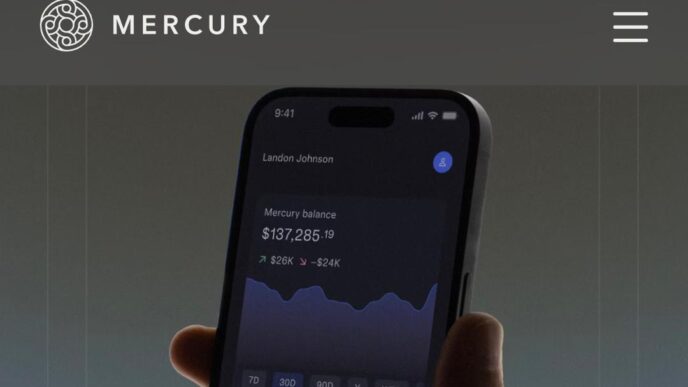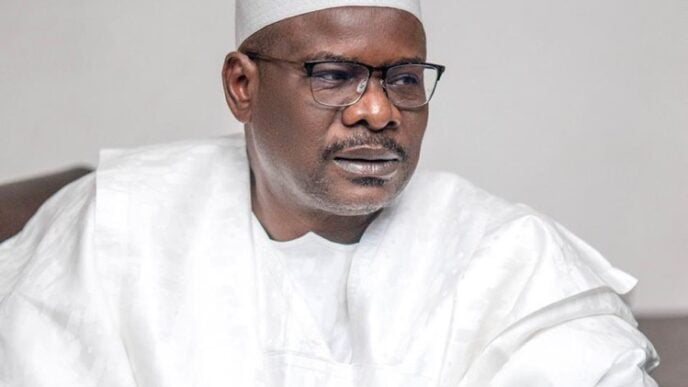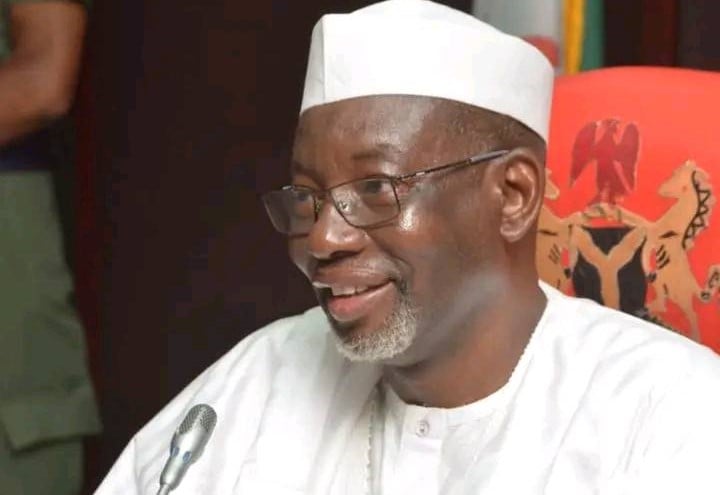In October 2020, Aisha Dahir-Umar was confirmed as the substantive director-general of the National Pension Commission (PenCom) after holding the fort in an acting position following the controversial removal of Chinelo Anohu, her predecessor, in 2017.
And now, President Bola Tinubu has nominated Omolola Oloworaran as Dahir-Umar’s successor, subject to senate confirmation. TheCable understands that Dahir-Umar has handed over to Anyim Nyere, the commissioner technical and the most senior member of the board, who will act as DG until a new chief executive assumes office.
As the multi-trillion naira Nigerian pension industry prepares to receive a new chief regulator, TheCable presents the highlights of Dahir-Umar’s tenure, both as acting and substantive DG, using information sourced from PenCom’s latest official data as well as her e-book, ‘Fighting for the Future’, published in 2023.
1. PENSION ASSETS TRIPLED
Between 2017, when she assumed office, and 2024, accumulated pension assets rose from N7.51 trillion to N20.23 trillion, according to official data as at May 31, 2024. This represents a growth of 161.7 percent. The proportion of total pension assets to Nigeria’s GDP was 8.39 percent as at March 31, 2024. The flagship contributory pension scheme (CPS) recorded total monthly inflows of N8.18 trillion as at May 31, 2024.
Advertisement
2. REGISTERED CONTRIBUTORS GREW
A total of 10.28 million employees from both the public and private sectors were registered for the CPS by the pension fund administrators (PFAs) as at 31 March 2024, representing an increase of 2.46 million from a total of 7.82 million registered contributors as at 31 December 2017. This number is considered significant given the difficult economic circumstances which affected the finances of the public and private sectors. The number of retirement savings account (RSA) holders is still growing.
3. PFAS RECAPITALISED
Writing in ‘Fighting for the Future’, Dahir-Umar explained why PenCom decided to raise the minimum capital base for the pension fund administrators (PFAs): “The growth of the Pension Industry, or any industry for that matter, also comes challenges. There is a tendency to be caught up in the euphoria and lose sight of the need to strengthen the institutions that can make or mar the success stories. One element the Commission identified was the need to improve the capacity of PFAs for optimal efficiency and service delivery. After taking several factors into consideration, we increased the Minimum Regulatory Capital (Shareholders’ Fund) requirement for PFAs from N1 billion N5 billion unimpaired by losses. This would enable PFAs employ and retain skilled staff and ensure the adequacy of resources to fund operational requirements, such as ICT infrastructure and branch expansion. All the PFAs met the April 27, 2022 recapitalisation deadline and now have a robust capital base.”
4. BONDS AND SECURITIES IMPACTED
The impact of pension assets is felt outside the industry — they are invested in treasury bills, Federal Government of Nigeria bonds, Sukuk, green bonds, corporate debt and local money market securities and mutual funds. As at 31 March 2024, investment in federal government securities amounted to N12.20 trillion, accounting for 61.95 percent of the total pension funds under management. Pension funds were used to supported infrastructure development in Nigeria through a combined investment of N737.00 billion in projects such as rails, roads, power, and energy. In the stock market, pension fund investments are well now over N1 trillion.
Advertisement
5. RESIDENTIAL MORTGAGE USHERED IN
Owning a home is big deal anywhere in the world but having the means to fulfil the desire is often a challenge, particularly in countries where lenders tend to focus on only high-net-worth individuals. In September 2022, PenCom introduced the utilisation of part of RSA savings for mortgage. The commission had, as at 31 March 2024, approved 2,971 applications submitted by RSA holders for deployment of N29.12 billion as equity contributions towards payment for residential mortgage under the scheme.
6. THE MICRO PENSION PLAN BIRTHED
In March 2019, the micro pension plan (MPP) was launched by President Muhammadu Buhari. It was developed by PenCom with the objective of expanding pension coverage to the informal sector of the Nigerian economy. The product was conceived to guarantee a secure future through steady income at retirement, thereby reducing old-age poverty. PFAs had, as at 31 March 2024, registered a total of 126,941 contributors who contributed a total of N791,574,202.42 worth of pension assets under MPP.

7. ENROLMENT AUTOMATED
Previously, PenCom staff travelled all over the country to enrol prospective retirees of the treasury-funded agencies. This was considered time-consuming and expensive. The commission, in 2021, automated the pre-retirement verification and enrolment exercise by deploying an online enrolment application with the capabilities to register, verify and enrol federal government prospective retirees. The annual enrolment exercise is conducted to determine retirees’ accrued pension liability for budgetary provision and was hitherto conducted at selected centres in the six geo-political zones of the country. Prospective retirees of FGN Treasury funded MDAs are now seamlessly verified and enrolled without having to travel across the country for the exercise. The process of determination and payment of prospective retirees and retirees accrued pension liabilities has been significantly fast tracked.
8. TRANSFER WINDOW OPENED
The Pension Reform Act (PRA) 2014 allows RSA holders to transfer from one PFA to another once in a year to create competition and improve service delivery. This finally became reality in November 2020 following the development of the RSA Transfer System (RTS) application by PenCom. The computer-based application is for initiating, processing and monitoring the RSA transfer process on an online real-time basis. Contributors can seamlessly transfer their RSAs from their present PFAs to another. The transfer requests are processed and concluded on a quarterly basis. Transfer requests are processed and concluded on a quarterly basis and the commission had, as at the end of the first quarter of 2023, concluded 12 quarters. A total number of 222,141 RSAs with the total value of N908,362,906,810.80 pension assets had been transferred as at 30 September 2023.
Advertisement
9. PENSION ENHANCED
To boost receivable pensions, PenCom introduced the pension enhancement initiative. The commission, after examining the balances in the RSAs of retirees on programmed withdrawal, concluded that the returns could be better to enhance the periodic payments. It sought and got the approval of the government to implement the initiative. This led to increased monthly pensions for most retirees on programmed withdrawal. The first enhancement was in December 2017, with 64,076 retirees benefitting from an enhanced monthly pension totalling N303 million. Government then approved it should be done every three years. The next one, done in February 2020, enhanced the benefits of 86,108 retirees benefitting with N444 million. The third edition in February 2023 was for those who retired between July 2007 and December 2019. As at 24 March 2023, a total of 58,232 retirees had benefited from the enhancement exercise.
10. NON-INTEREST FUND INTRODUCED
Because of different religious beliefs, some contributors had for long been expressing a desire for their funds to be invested in non-interest yielding instruments. PenCom held a series of engagements with other financial regulators and stakeholders towards creating a non-interest fund (NIF) to cater for the needs of this category of RSA holders. In no time, NIFs gained ground in financial markets across the world irrespective of religious inclinations. From assets of N7.79 billion in September 2021, the fund grew to N38.41 billion by the end of February 2023, representing a healthy growth of N28.46 billion.
11. AND THE AWARDS…
In the 2022 Transparency and Integrity Index ranking for Ministries, Departments and Agencies (MDAs), PenCom was one of the top three organisations in the ranking done by the Centre for Fiscal Transparency and Integrity Watch (CeFTIW), an organisation supported by the MacArthur Foundation. Over 500 MDAs were assessed across six broad variables aimed at preventing corruption in public office. The variables were: procurement, budget, human resources, inclusion and website integrity, according to CeFTIW. The body said it used these criteria to check the level of transparency with regards to public finances, especially in procurement, how the MDAs spend their money, generate taxes, and recruit people. CeFTIW also assesses the MDAs on efficiency.
Advertisement











